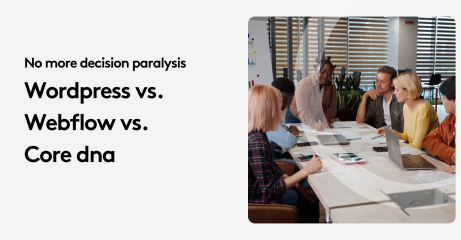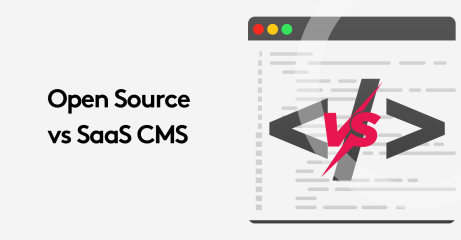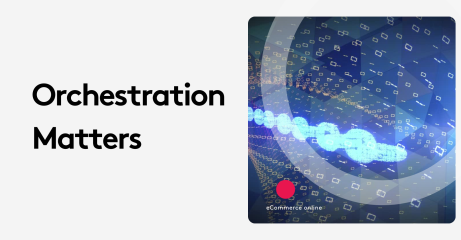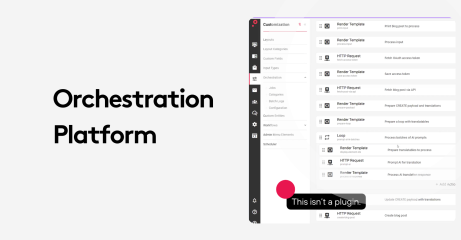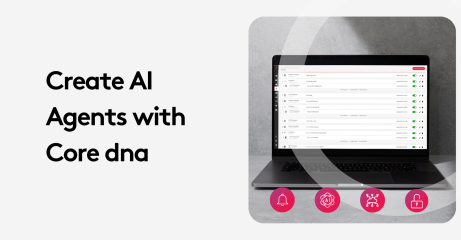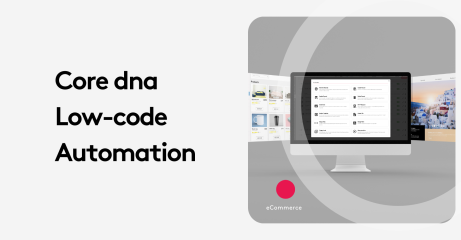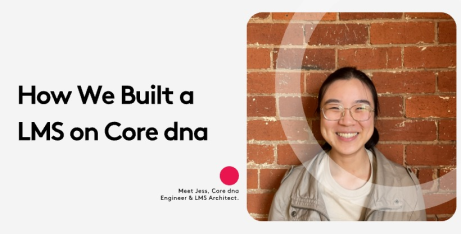Sitecore CMS: Key Features, Benefits, and Challenges
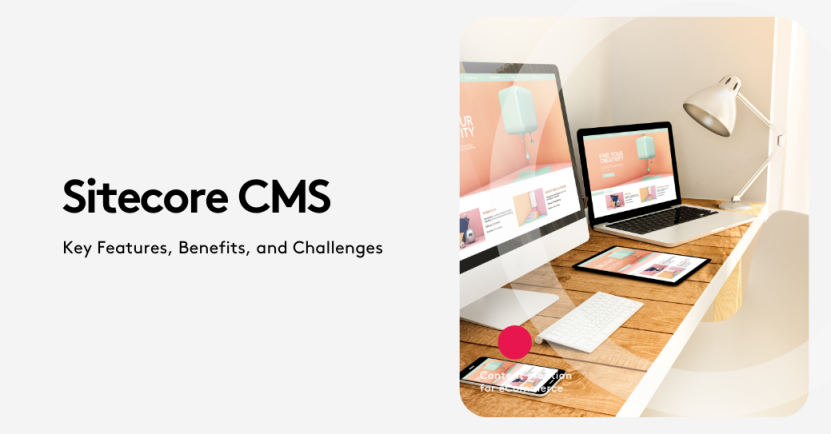
When evaluating content management platforms, many businesses encounter countless options. The market has become saturated, making it hard to distinguish which CMS best fits each business's specific needs.
Today, we will take a look at one of the biggest names in content management: Sitecore CMS. Sitecore CMS have been around for over a decade, making them a pioneer in the market.
But for many organizations, choosing a CMS isn’t just about ticking off a list of features (or a popularity contest. Selecting the right CMS is a decision that directly impact their online brand presence, customer experience, and business growth.
We designed this article to go in details and tell you everything you need to know about Sitecore. We deep dive in the main features, flexibility, and deployment options that Sitecore offers to help you make an informed decision when choosing a CMS.
Let’s jump in!
On this page:
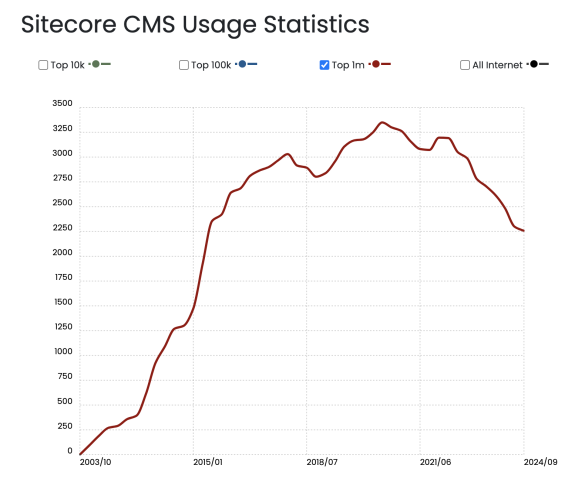
What is Sitecore CMS?
Sitecore CMS is a content management system for enterprises. It offers business an extensive list of features. It not a platform just to publish and organize content but to design personalized digital experiences.
To do this, Sitecore works like a digital hub where content, data, and customer engagement come together. Unlike other, more simple CMS options, Sitecore falls under the category of a Digital Experience Platform (DXP). This means it goes beyond traditional content management. It includes tools for customer insights, marketing automation, and personalization features.
But it’s not all roses.
Sitecore CMS advanced capabilities can mean a steep learning curve, especially if you’re new to composable DXPs. And that brings the risk of failing to get to grips with your software fast enough for it to really make a difference to your bottom line.
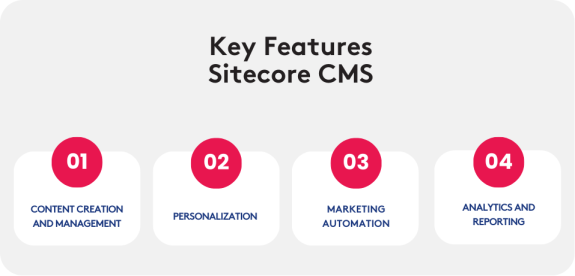
Key Features of Sitecore CMS
But we’re getting ahead of ourselves. Sitecore is still a huge player in the Digital Experience Platform and CMS industry, so what does it have to offer?
Ultimately, Sitecore CMS is known for delivering what big brands need. Including complex content management, marketing automation, and tools to better understand customer behavior.
Let’s take a look at some Sitecore features at the top of the list for most businesses.
Content Creation and Management
Sitecore CMS allows teams to manage content in one place. This streamlines the entire process and makes publishing and organizing content easy.
From text and videos to documents, your content team can publish and organize everything easily. Sitecore’s drag-and-drop editor makes it easy to create pages and layouts without a coding background. Great for businesses who don’t want to rely on expensive tech talent for every small content edit.
As a content management system, Sitecore is good. It offers many features out of the box, and works well integrated with other tools that enterprise businesses are likely to use. But for the price, it needs to do a little more.
Personalization Features and Marketing Automation Tools
One of Sitecore’s best features is its ability to customize content for each user. Using data about customer behavior and demographics, Sitecore’s Digital Experience Platform can deliver personalized experiences for different visitors.
These personalization features open a whole new world of content marketing. One that’s 100% unique to each new visitor depending on their previous interactions with the brand.
Imagine a fashion brand showing returning customers unique content about a new collection. All while showing wholesale clients promo materials they can use to generate sales in their own store. Or think about a healthcare business presenting different faces to patients and doctors. Or even an ecom business distinguishing between repeat and first-time customers in their content.
With built-in marketing automation tools, Sitecore content management system helps teams run automated targeted campaigns. Meaning you can run tailored campaigns like this on autopilot.
Advanced Analytics and Reporting
But how can you make the most of your content campaigns? That’s where advanced CMS analytics and reporting comes in.
Knowing how customers interact with your content is vital for improving engagement. And if you’re running complex campaigns like this, it’s even more vital to show that your spend is paying off.
Sitecore CMS analytics is an added tool to help businesses track online interactions. This gives marketing teams all the data they need to refine their strategies over time.
But remember, all this data is only useful if you know what to do with it! Sitecore isn’t a content management system that’s quick to set up and get in place. With steep learning curves and a deep knowledge of content management and CMS analytics necessary, it can be challenging to implement.
Sitecore’s Composable DXP: Flexibility, But at a Cost
But what if you don’t need all those marketing automation tools and flexible features? Is Sitecore still a good choice for you? Well, perhaps yes.
One unique aspect of Sitecore is its composable DXP. This lets businesses select specific modules they need, such as content management, eCommerce, or customer data platforms.
A composable DXP is a flexible, modular approach to building digital experiences. Instead of having everything OOTB, a composable DXP lets an org "compose" (or configure) its own platform by selecting and integrating only the specific tools and services it needs.
This modular approach can be a game-changer for companies with complex needs. It brings flexibility without the need to commit to a one-size-fits-all system.
However, all that flexibility often comes with added complexity. What is a popular feature is also one of the biggest Sitecore challenges.
Our experts have found that organizations often struggle with the complexity of managing these modules. They either over- or under-’compose’.
Given an enticing menu of features and a large enterprise CMS budget, it’s easy for content teams to get carried away. This results in a wasted monthly spend and a frustrated team. However, not selecting modules that then turn out to be important can be a waste of time. This can result in constant implementation cycles that clog up your workflow.
Finding the balance when it comes to CMS integration is key, and that means an in-depth discovery phase and a project team clear on their objectives (not always easy to find!).
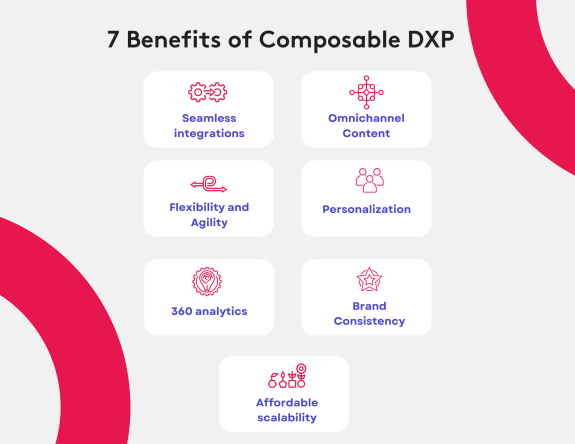
Sitecore’s Deployment Options to Fit Your Needs
Moving onto the implementation phase, let’s consider the CMS deployment options for SItecore.
Sitecore offers several deployment models for their content management system. This lets orgs like yours decide how to run the platform based on their specific needs and industry requirements.
Here’s a quick overview:
On-Premises
‘On-prem’ is a classic option that is still ideal for companies needing full control of their data. Especially in industries with strict regulations, like healthcare.
On-premises deployment means hosting software on your company’s own servers. This gives you full control over data and security but requiring dedicated IT resources for maintenance and updates.
Sitecore offers on-prem CMS deployment options for businesses that need it. A key advantage over Enterprise CMS platforms that don’t offer this deployment.
Cloud
Where do you store your data if not on-prem? On the cloud, of course!
A popular option for many businesses, cloud CMS deployment offers scalability, easy access for global teams, and straightforward maintenance. Plus resources that can adjust to traffic and usage demands.
Hybrid
Finally, Sitecore offers a hybrid CMS deployment setup. Here companies can keep critical data in on-prem servers while also enjoying cloud scalability—the best of both worlds.
These deployment options give Sitecore impressive flexibility. But, as a common theme of Sitecore challenges, this flexibility can also add layers of decision-making for teams balancing security, control, and scalability.
Sitecore’s Multichannel and Multilingual Support
Beyond deployment, does Sitecore enterprise CMS offer the features your org needs to serve your customers?
One standout feature of Sitecore is its multichannel and multilingual support. This offers significant advantages for global businesses. With multilingual offerings, a global brand can easily manage content across all its platforms like web, mobile, and social media. That means consistent messaging, tone, and campaigns across regions and in multiple languages.
On top of that, Sitecore’s ability to handle multilingual content makes it a strong choice of content management system for brands delivering localized experiences. Taking those personalization features and marketing automation tools to the next level.
Security and Compliance in Sitecore CMS
So, what about security?
With digital privacy concerns on the rise security is top of mind for many Sitecore CMS users.
Sitecore has you covered, though, with robust security measures like role-based access, data encryption, and secure API endpoints. On top of that, the on-prem CMS deployment makes security central, and the CMS itself is designed to support regulatory compliance, including GDPR, HIPAA, and PCI DSS.
Of course, these security measures require regular updates and oversight. Which may add to the overall management load, but in general, Sitecore’s security is a great feature.
A Look at Sitecore Challenges
While this enterprise CMS offers impressive capabilities, Sitecore challenges are frequent.
Some common hurdles that businesses face with Sitecore include:
Extreme Complexity and Demand on Resources
One of Sitecore challenges revolves around its complexity and the demand for resources it requires.
Sitecore’s powerful tools often require significant technical expertise and foresight. This is expensive and time-consuming. Does your organization have the man-power available for such a complex discovery mapping project? Do you have the in-house talent to manage complex Digital Experience Platform modules and CMS integrations?
Businesses with smaller teams or limited budgets may find the platform complex to manage. Even enterprise businesses with more in-house power may find the switch to be difficult. Before choosing Sitecore, our experts recommend investing in an in-depth CMS comparison phase. This way, you can make sure that this is the best decision for you.
High Total Cost of Ownership
And all this complexity adds up.
Sitecore is not the cheapest option available, and businesses on a budget might be best to find an alternative.
Beyond licensing fees, many businesses face skyrocketing costs for customization, CMS integration, and support. Even worse, many of these costs can be avoidable – with complex DXPs causing high fees for functionality that may not be used or required.
For smaller companies, these challenges can’t be overlooked. Can your business afford this, and (more importantly) is it worth it for your business model?
Mixed Developer Feedback
But beyond project management, Sitecore provokes mixed emotions in the dev world.
Some developers appreciate Sitecore’s capabilities. But others have raised their frustrations over its complexity.
On reddit, it’s common to see Sitecore described as difficult platform to work with and most project end up bloated. — not resounding feedback for a CMS that is so popular.
But does that matter? As long as the bottom line is happy and the customers are experiencing and engaging with your business in new ways, perhaps that’s all that a CMS needs for it to be successful.
Sitecore Vs Core dna
So, after all this, are there alternatives available?
Absolutely.
While Sitecore’s feature set appeals to larger organizations with specific needs, it may not be the best fit for every business. Our favorite alternative, Core dna, takes a streamlined approach.
Let’s take a look at Core dna CMS vs Sitecore CMS comparison table below.
All About Core dna
So, who, or what, is Core dna?
First let's start with why we built Core dna? We built Core dna to give low-tech team the platform and support to deliver big tech outcomes.
Core dna is a cloud CMS platform that offers outstanding "human" support, flexibility architecture, and advanced features for marketers and content creators.
If your business does't have the development teams to maintain a system like Sitecore, Core dna is your solution. Our teams work as an extension of yours. It combines content management, digital asset management, marketing automation, and eCommerce into one OOTB development.
Core dna CMS is ideal for businesses that want powerful digital capabilities without heavy technical overheads.
Core dna’s integrated SaaS approach means businesses get up and running faster with a strong support team to guarantee the success of each project.
As a result, for companies seeking a CMS that balances robust functionality with ease of use, Core dna offers a streamlined solution that makes digital management more accessible and cost-effective.
Choosing the Right CMS for Your Business
Choosing a CMS is no easy task and involves integrating the needs of many stakeholders. The best way to go about selecting a CMS is through and RFP. A CMS RFP will help you compare all platforms on a level playing field.
The most important 1st step is to gather all the requirements from the different stakeholders. Then, create a rating system to clearly distinguish must-haves from nice-to-haves.
Another important aspect of CMS selection process is to make sure you are also approaching it with scalability in mind.
For example, you may not need multiple language management today, but you might want to branch out to a different country in the next years. Having a platform that can support and scale with you is essential to avoid the headache of replatforming.
Sitecore CMS is a strong content management system with features to meet the needs of large organizations and enterprises.
But for businesses seeking a more straightforward, cost-effective solution might find it too complex.
When selecting a CMS, it’s essential to weigh the specific needs of your team, customers, and long-term digital goals.
When you understand your business needs and have a clear vision on what you consider as success, then what CMS to choose will be an easy question to answer.
A CMS should act as your partner n the digital landscape of your business evolves – not a burden.



